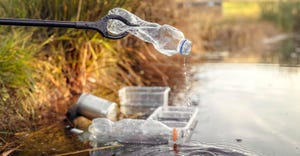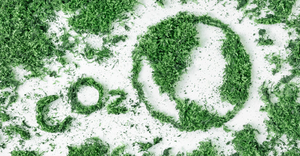Keurig Dr Pepper Achieves Longstanding Sustainability Commitment to Make 100% of its K-Cup Pods Recyclable
December 10, 2020
BURLINGTON, Mass. and PLANO, Texas -- Keurig Dr Pepper (NASDAQ: KDP) announced that it has successfully achieved one of its longstanding sustainability commitments – all of the K-Cup® pods the Company produces are now recyclable.
The extensive effort involved converting more than 100 manufacturing lines to produce the pods now made from polypropylene #5 plastic. In addition, new packaging for the recyclable K-Cup pods features a green recyclable flag as well as the industry-respected How2Recycle® label that clearly communicates recycling instructions to consumers[1].
Keurig Dr Pepper produces approximately 80% of the coffee pods sold at retail[2] for use in Keurig® brewers and, earlier this year, began shipping to retailers the new recyclable format, which is now largely transitioned on retail shelves.
"It's an exciting day for KDP and our partners as we complete this multi-year journey that required intensive product development, significant capital investment and expansive industry engagement," said Monique Oxender, Chief Sustainability Officer at Keurig Dr Pepper.
To ensure pods could be successfully recovered in recycling facility streams, in 2016 KDP pioneered testing using RFID technology to track tens of thousands of K-Cup pods in various recycling facilities across North America. Those tests demonstrated that K-Cup pods were able to successfully pass through the stream with other recyclables to be further sorted with containers, a finding which was further validated by the Association of Plastic Recyclers.
In addition to converting 100% of K-Cup pods to the new recyclable format, KDP has intensified its efforts to ensure that recycling facilities across the U.S. have the capability to recycle polypropylene. Earlier this year, with a $10 million commitment, KDP became a Founding Member and the largest funder of The Recycling Partnership's Polypropylene Recycling Coalition ("The Coalition"), a collaborative of 18 organizations, including fellow steering committee members Braskem, the Walmart Foundation and the NextGen Consortium, dedicated to increasing the quantity and quality of polypropylene recycling in the U.S.
Earlier today, The Coalition announced the recipients of its first four grants – Materials Recovery Facilities in New Jersey, New York, Pennsylvania and Ohio – to improve and increase sortation of polypropylene and support targeted consumer education efforts to increase collection of this valuable material. These grants will widen total nationwide acceptance of polypropylene in curbside recycling programs by approximately 1.7% to an additional four million people, resulting in the recovery of a larger supply of polypropylene that could be made into new products such as consumer packaging and automotive parts.
Oxender added, "Designing recyclable coffee pods is just one important step in our journey to make the Keurig brewing system more sustainable. Our work continues to minimize our overall plastic footprint while we play a leadership role in cross-industry collaborations for critical recycling infrastructure improvements across the United States and Canada in support of a circular economy."
KDP is a Principal Member of World Wildlife Fund's (WWF) ReSource: Plastic activation hub, a first-of-its-kind effort to quantify corporate impact and track company actions and opportunities to reduce plastic waste.
"We developed ReSource: Plastic to help companies turn their plastic waste commitments into action, and that's exactly what Keurig Dr Pepper has done with today's announcement," said Erin Simon, Head, Plastic Waste and Business, World Wildlife Fund. "Access to recyclable content is essential if we're going to build a larger plastic waste management system. Investing in polypropylene is a positive step toward building a system where materials can be successfully recovered."
KDP's research and development teams are working on new sustainability innovations for Keurig brewers and pods. In both Canada and the U.S., the Keurig K-Mini® and K-Mini Plus® coffee makers in matte black are made with at least 20% and 30% post-consumer recycled (PCR) plastic, respectively, and the new K-Supreme Plus® brewer also contains at least 30% PCR content. The Company plans to increase those percentages in those brewers in 2021 while expanding the use of PCR to more brewer models.
Learn more about KDP's journey to delivering recyclable K-Cup pods and its sustainability efforts in two recent Vox Explainer videos here and here.
About Keurig Dr Pepper
Keurig Dr Pepper (KDP) is a leading beverage company in North America, with annual revenue in excess of $11 billion and nearly 26,000 employees. KDP holds leadership positions in soft drinks, specialty coffee and tea, water, juice and juice drinks and mixers, and markets the #1 single serve coffee brewing system in the U.S. and Canada. The Company's portfolio of more than 125 owned, licensed and partner brands is designed to satisfy virtually any consumer need, any time, and includes Keurig®, Dr Pepper®, Green Mountain Coffee Roasters®, Canada Dry®, Snapple®, Bai®, Mott's®, CORE® and The Original Donut Shop®. Through its powerful sales and distribution network, KDP can deliver its portfolio of hot and cold beverages to nearly every point of purchase for consumers. The Company is committed to sourcing, producing and distributing its beverages responsibly through its Drink Well. Do Good. corporate responsibility platform, including efforts around circular packaging, efficient natural resource use and supply chain sustainability. For more information, visit, www.keurigdrpepper.com.
About the Polypropylene Recycling Coalition
The Polypropylene Recycling Coalition is focused on increasing access for people to recycle polypropylene through curbside recycling programs, ensuring more recycling processing facilities can sort the material successfully, and stimulating a robust end-market of high-quality recycled polypropylene for reuse in packaging. The Coalition is led by The Recycling Partnership as part of The Partnership's Pathway to Circularity, an initiative creating scalable solutions to packaging and system challenges and accelerating the shift to the circular economy that uses fewer finite resources. To learn more about the Polypropylene Recycling Coalition, its members, and how to get involved in supporting its goals, visit recyclingpartnership.org/polypropylene-coalition
You May Also Like


